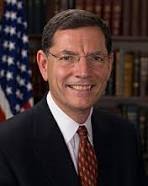Just when you thought the Atlantic City market had rightsized and the Boardwalk was out of the woods, here comes Moody’s Investors Service with a baleful report. Pointing to in-progress casino  expansion in several neighboring East Coast states, Moody’s predicts that Atlantic City is in for another round of casino closures. It makes no firm predictions but the ones it identifies as “already on the brink” contain one surprise — Caesars Atlantic City — and two sad sacks, Trump Taj Mahal and Bally’s Atlantic City. It is no coincidence that all three are in Chapter 11. (The bad news for Atlantic City comes with a silver lining for the manufacturing sector, which is expected to be called upon to supply 90,000 new slots to adjoining states by 2019.)
expansion in several neighboring East Coast states, Moody’s predicts that Atlantic City is in for another round of casino closures. It makes no firm predictions but the ones it identifies as “already on the brink” contain one surprise — Caesars Atlantic City — and two sad sacks, Trump Taj Mahal and Bally’s Atlantic City. It is no coincidence that all three are in Chapter 11. (The bad news for Atlantic City comes with a silver lining for the manufacturing sector, which is expected to be called upon to supply 90,000 new slots to adjoining states by 2019.)
“As the number of casinos shrink, some of the remaining casinos have seen revenues increase. But we expect increased competition will keep the heat on incumbents, and that number of casinos in Atlantic City will likely continue to shrink,” Moody’s prognosticated. In this dire atmosphere, Glenn Straub is actually planning to reopen the Revel casino — or possibly sublease it to another gaming firm and let them have the headaches. It seems to go against all logic to relaunch a casino that was so resoundingly rejected by the market, but never accuse Straub of thinking conventionally.
Moody’s analyst Peter Trombetta tried to offer some solace, saying, “It’s very unlikely someone is going to drive past one casino to go to another casino if they have similar offerings. Offsetting that to a degree is Atlantic City is on the beach, so you still have that summer traffic going to the Jersey Shore … you’re not going to lose that customer.”
* After years of talk, the so-called “Carcieri fix” may finally be in. Sen. John Barrasso (R) has introduced legislation that may ease the path to gaming for tribes like the Mashpee Wampanoag. The issue is  complicated but Barrasso’s bill would allow the federal government to take land into trust for all recognized tribes, not just those predating 1934. By the same token, local governments’ input would be given more consideration, a concession to foes of so-called “reservation shopping.” Reports Global Gaming Business, “some tribal leaders see the ambiguity of Barrasso’s bill as opening the door for municipalities and counties to demand fees or other payments.” What Sen. Barrasso is doing is likely to make enemies on both sides of the issue but it’s an admirably Solomonic resolution to a thorny issue, from where we sit.
complicated but Barrasso’s bill would allow the federal government to take land into trust for all recognized tribes, not just those predating 1934. By the same token, local governments’ input would be given more consideration, a concession to foes of so-called “reservation shopping.” Reports Global Gaming Business, “some tribal leaders see the ambiguity of Barrasso’s bill as opening the door for municipalities and counties to demand fees or other payments.” What Sen. Barrasso is doing is likely to make enemies on both sides of the issue but it’s an admirably Solomonic resolution to a thorny issue, from where we sit.
* DraftKings declared victory in its Nov. 25 courtroom confrontation with New York Attorney General Eric Schneiderman. However, that did not prevent the daily fantasy sports site from circling its wagons, just in case. It has hired GeoComply to conduct geolocation searches to make sure that nobody is playing from a state where they  shouldn’t. It also cut off access to proxy servers it was using to take action from states in which DFS is illegal. (Mens rea much?) DraftKings also unveiled an internal advisory board, chaired by former U.S. Attorney Michael Garcia. To cap it all, CEO Jason Robins announced the hiring of global risk-management firm Exiger to help him run a clean outfit.
shouldn’t. It also cut off access to proxy servers it was using to take action from states in which DFS is illegal. (Mens rea much?) DraftKings also unveiled an internal advisory board, chaired by former U.S. Attorney Michael Garcia. To cap it all, CEO Jason Robins announced the hiring of global risk-management firm Exiger to help him run a clean outfit.
However, there were a couple of potentially worrisome developments for DraftKings. One is that, in running its big TV yap, it also ran up a $400 million advertising tab with the likes of ESPN — and DFS revenues are falling. The other shoe to drop was a denunciation from the PGA. In a Sept. 24 memo, newly unveiled, the league states that golfers who play on or endorse DFS sites will be regarded as guilty of “conduct unbecoming of a professional.” So there’s at least one major league not in a hurry to jump into bed with DFS.
* Chinese millennials give every indication of being the coming phenomenon in the leisure industry — including gambling. The progeny of China‘s one-child progeny, the 25-to-34 year olds have copious disposable income that is increasing at a rate much faster than ours. They also have an avid appetite for overseas travel, especially to Las Vegas. By 2019, there are expected to be 174 million Chinese tourists, with a collective wallet of $264 billion. And to think that, 15 years ago, Chinese tourists were only 10 million in number. Whether or not the casino industry in the U.S. is prepared to cater to them is an open question. (Hint: Don’t charge for Wi-Fi.)

